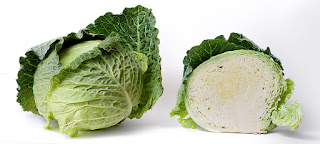Growing up bi-lingual is significantly different from someone who has grown up with one language. We live in two different kinds of worlds and often have to deal with things that mono-lingual people wouldn't have to deal with. I was born and raised in Scotland to my Persian parents and here is my experience.
1. Helping your parents
English isn't my parents' first language so being the only native speaker in the house I'm often bombarded with tasks such as proof-reading my parent's texts or emails. In addition to English not being their first language they live in Scotland of all places, where English is hardly even spoken properly, so I often find myself giving Scottish slang lessons when I get home from work or uni.
English isn't my parents' first language so being the only native speaker in the house I'm often bombarded with tasks such as proof-reading my parent's texts or emails. In addition to English not being their first language they live in Scotland of all places, where English is hardly even spoken properly, so I often find myself giving Scottish slang lessons when I get home from work or uni.
2. Getting asked a lot of stupid questions
The two most common questions I would get asked as a child are "what language do you dream in?" and "what language do you think in?" to me, the answer is obvious - if I speak both languages fluently then why would I not dream and think in both languages just like in real life? I also had people who thought I was French because they would mix up "Persian" with "Parisian". Some people even look at me and say "Persian?, isn't that a cat breed?"
3. Twice as many presents
In the UK, we have Christmas, Easter, Halloween. But in Iran we have NOROOZ which is undoubtably my absolute favorite time of the year. Orginally a Zoroastian celebration, It is essentially our version of new year as the word norooz translates to "new day". This usually takes place on the first day of spring to symbolise a new life as this is the time of year animals are born and flowers are blooming. Gifts are normally exchanged and the whole family gathers round for a huge meal, followed by a picnic on the 13th day after Norooz.
In the UK, we have Christmas, Easter, Halloween. But in Iran we have NOROOZ which is undoubtably my absolute favorite time of the year. Orginally a Zoroastian celebration, It is essentially our version of new year as the word norooz translates to "new day". This usually takes place on the first day of spring to symbolise a new life as this is the time of year animals are born and flowers are blooming. Gifts are normally exchanged and the whole family gathers round for a huge meal, followed by a picnic on the 13th day after Norooz.
4. Mixing the languages up
If you live in a multilingual household, you know that it is VERY HARD to stick to one language and you will inevitably mix the two languages up. In my household we have Penglish, and in my friend's household there's Greeklish, Franglais, Denglisch and so on...
If you live in a multilingual household, you know that it is VERY HARD to stick to one language and you will inevitably mix the two languages up. In my household we have Penglish, and in my friend's household there's Greeklish, Franglais, Denglisch and so on...
5. Your name is always pronounced wrong
Always.
I've been called Say-ah, Sara, Serah, sa-yeh, funnily enough, only foreign people get my name correct the first time which is "Sa-yah"
There's a lot more that I can add to the list but this is all we have time for Today.
This is my final blog post so if you enjoyed this have a look at my other blog posts on the right hand side of this page.
Saya
Always.
I've been called Say-ah, Sara, Serah, sa-yeh, funnily enough, only foreign people get my name correct the first time which is "Sa-yah"
There's a lot more that I can add to the list but this is all we have time for Today.
This is my final blog post so if you enjoyed this have a look at my other blog posts on the right hand side of this page.
Saya
























